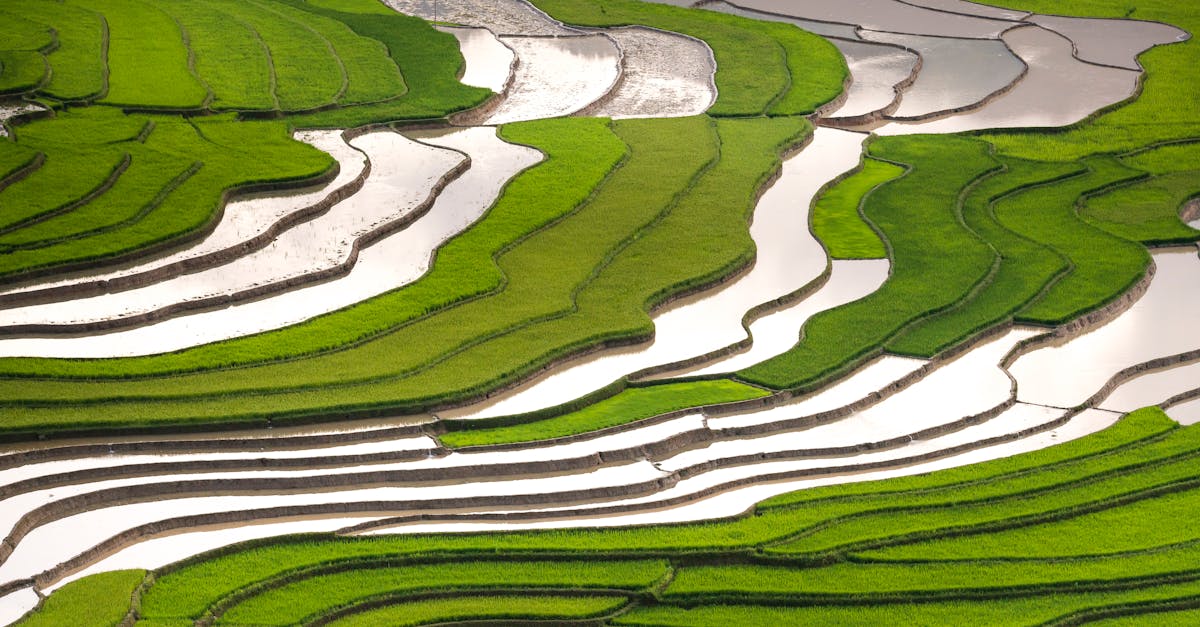In our quest for sustainable agriculture, we study into the innovative area of farming without water.
Embracing this eco-friendly approach, we investigate the challenges and solutions of cultivating crops with minimal water usage.
As we navigate through the intricacies of waterless farming, we scrutinize the benefits, techniques, and impact on the environment.
Join us on this journey as we examine the secrets of nurturing bountiful harvests while conserving our planet’s most precious resource.
Key Takeaways
- Embracing Farming Without Water: Utilize innovative methods and sustainable practices to cultivate crops with minimal water usage, promoting efficient and resourceful agriculture.
- Challenges of Waterless Farming: Limited water availability, soil degradation, pest infestations, and crop yield reduction are significant challenges that can be mitigated through innovative techniques and sustainable practices.
- Solutions for Minimal Water Usage: Implement drip irrigation systems, mulching, and rainwater harvesting to maximize water efficiency in agriculture and ensure sustainable crop production.
- Benefits of Waterless Farming: Waterless farming conserves water resources, reduces costs, minimizes environmental impact, enhances soil quality, and contributes to climate change mitigation efforts.
- Techniques for Cultivating Crops: Utilize drip irrigation, mulching, and hydroponics to cultivate crops sustainably and efficiently without relying heavily on water resources.
- Impact on the Environment: Farming without water reduces water consumption, minimizes chemical runoff, lowers energy consumption, and helps preserve ecosystems while mitigating the effects of climate change.

Embracing Farming Without Water
When it comes to farming without water, it might sound like a challenge, but we’re here to show you how it’s possible. By utilizing innovative methods and sustainable practices, we can cultivate crops without relying heavily on water resources. Embracing Farming Without Water not only helps the environment but also promotes efficient and resourceful agriculture. One key aspect is utilizing drought-resistant crop varieties that can thrive in arid conditions.
Implementing drip irrigation systems and water-efficient techniques allows us to make the most of available water resources. By managing soil moisture and adopting regenerative agriculture, we promote sustainable farming practices. Through careful water management and innovative technologies, we can achieve bountiful harvests without compromising the future. Embracing this approach opens new possibilities for environmentally conscious agriculture.
Ready to investigate more about farming without water? Check out this helpful resource on water-saving practices in agriculture for further insights.
Challenges of Waterless Farming
When it comes to farming without water, we must address the challenges head-on.
- Limited water availability poses a significant obstacle for farmers.
- Soil degradation is a common concern due to lack of moisture.
- Pest infestations can become rampant without sufficient water to deter them.
- Crop yield reduction is a real risk in water-scarce conditions.
To mitigate these challenges, innovative techniques and sustainable practices are important. Embracing drought-resistant crop varieties and implementing efficient irrigation systems are key steps in overcoming the hurdles of waterless farming.
For further insights on sustainable agriculture practices, check out the information provided by the United Nations Food and Agriculture Organization.

Solutions for Minimal Water Usage
When it comes to farming without water, it’s required to carry out sustainable practices that reduce water consumption. Here are some solutions we can consider:
- Drip Irrigation Systems: These systems deliver water directly to the roots of plants, minimizing wastage.
- Mulching: Applying mulch around plants helps retain soil moisture, reducing the need for frequent watering.
- Rainwater Harvesting: Collecting rainwater can supplement irrigation needs, especially in dry periods.
By adopting these practices, we can maximize water efficiency in agriculture while ensuring sustainable crop production.
For more information on sustainable water management in farming, check out resources from the United Nations Food and Agriculture Organization.
Benefits of Waterless Farming
When it comes to waterless farming, there are several advantages that make this method worth considering. Here are some benefits we can reap from implementing water-saving techniques in agriculture:
- Saves Water: Waterless farming helps conserve water resources for future generations.
- Cost-Effective: By using drought-resistant crops and water-efficient technologies, we can reduce expenses on water usage.
- Environmentally Friendly: Reducing water consumption in farming helps minimize environmental impact and promotes sustainability.
- Enhances Soil Quality: Practices like mulching and drip irrigation can improve soil health and fertility.
- Mitigates Climate Change: Waterless farming contributes to climate change mitigation efforts by conserving natural resources.
To learn more about the benefits of waterless farming, visit the United Nations Food and Agriculture Organization and investigate their resources on sustainable agriculture practices.

Techniques for Cultivating Crops
When it comes to farming without water, there are innovative techniques that can help us cultivate crops sustainably. Here are some methods we can use:
- Drip irrigation: This technique delivers water directly to the roots of plants, minimizing waste and maximizing efficiency.
- Mulching: By covering the soil with organic material like straw or leaves, we can retain moisture and suppress weed growth.
- Hydroponics: This soil-less method allows us to grow plants in a nutrient-rich water solution, conserving water resources.
To learn more about advanced farming techniques, you can visit the United Nations Food and Agriculture Organization website for valuable insights.
Impact on the Environment
Farming without water has significant impacts on the environment:
- Reduced water consumption leads to conservation of water resources.
- Decreased use of pesticides and fertilizers results in less chemical runoff into water sources.
- Lower energy consumption compared to traditional farming methods helps reduce carbon footprint.
This sustainable approach to farming helps in preserving ecosystems and mitigating the effects of climate change.
For more information on environmental impacts of innovative farming techniques, you can visit the Environmental Protection Agency or the World Wildlife Fund.

